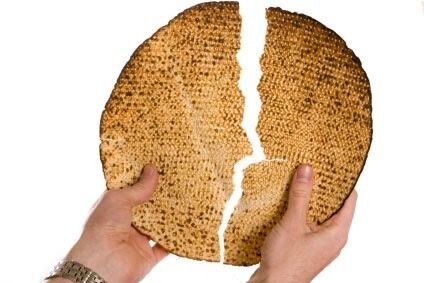Yachatz - Breaking Our Hearts
Yachatz is one essential steps of the Passover Seder that many of us speed through. During yachatz, we break the middle of our three matzahs, take the larger of the broken halves, and hide it as the afikoman. Many know the tradition of having children search for the afikoman at the end of the meal, for we cannot complete the Seder until the afikoman is found.
In the mystical tradition, the middle matzah symbolizes the heart. It is broken by living amid the injustices in the world and witnessing so much suffering. In life, most of the time, we are unable to focus clearly on our heartbreak. It simply hurts too much and there is so much wrong. Instead, we cover it over and just try to move on. On Passover, as part of our freedom ritual, we reconnect with our own broken-heartedness. It is only from this connected place that we can begin to envision a perfected righteous world.
Sometimes, we adults are unable to reconnect with our broken hearts. That is what the role of children is at the Seder. Children (or our inner children) are not only are tasked with the important job of asking questions at the Seder, but also asked to seek out and find the afikoman. It is only then that we can move forward and sing the Halleluyah psalms that conclude the Seder. It takes the energy and open heart of a child to question the status quo and to reconnect us with what our hearts most yearn for. It is only from that place of wholeness that we and our world can truly become free.
A Zissen (sweet) Pesach,
Getzel

